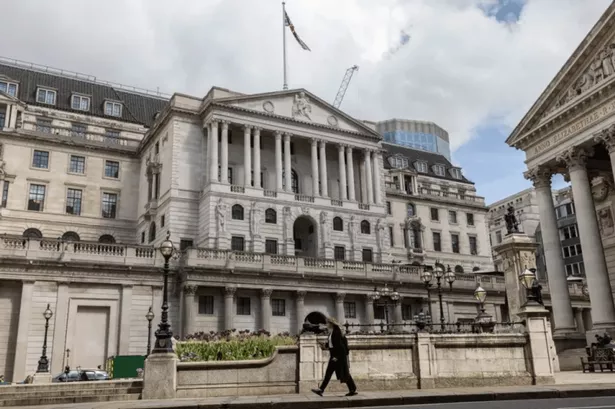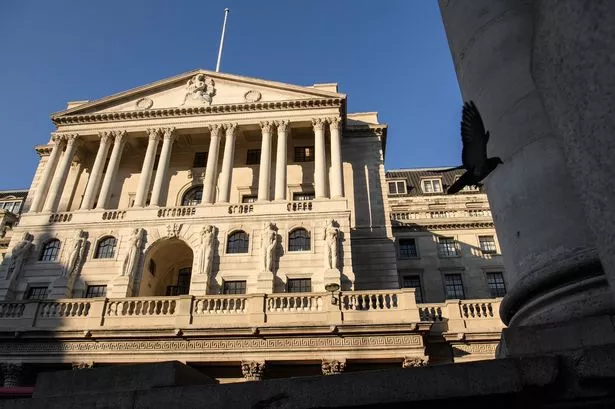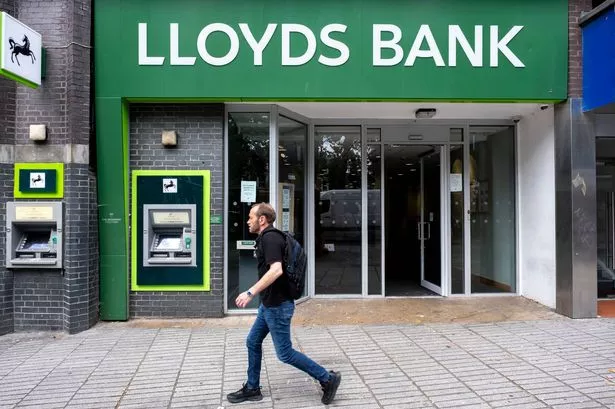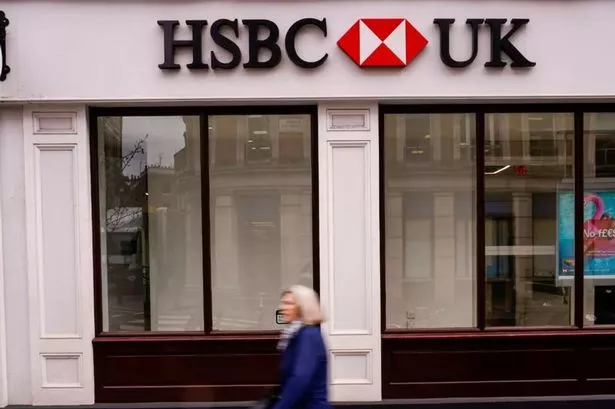Professional Services


Professional Services
Growing Newcastle business advisors RMT snaps up KSA Group in undisclosed deal
Growing North East business advisors RMT have snapped up a specialist restructuring practice in an undisclosed deal. Newcastle based RMT Accountants & Business Advisors, part of the Sumer Group, has completed the acquisition of the KSA Group, which specialises in pre-insolvency solutions. The company, which has offices in Berwick-upon-Tweed, Gateshead, Edinburgh and London, works with directors and owners of struggling businesses to achieve rescues, often without the need for a formal insolvency process. It was one of the first UK insolvency practices to use the internet to deliver its services, by launching an online portal 23 years ago. The 15-strong KSA team, which includes four directors and two licensed insolvency practitioners, is staying with the business. The combined restructuring team is being led by RMT director and head of recovery and restructuring, Chris Ferguson. The deal marks RMT’s third acquisition since it became part of the Sumer Group, a leading mid-market accountancy practice for SMEs, making growth by acquisition a key part of its strategy. RMT completed the acquisition of rural and agricultural specialists McCowie & Co in late 2023, and it joined forces in the summer with Durham-headquartered Ribchesters Chartered Accountants, which now operates as RMT Ribchesters. Mr Ferguson, director and head of recovery and restructuring at RMT, said: “Much of the work done by insolvency professionals goes under the radar, with pre-emptive support and advice helping to save hundreds of companies and thousands of jobs across the UK every year without the need for a formal insolvency process. “KSA has a particularly strong regional and national reputation in this respect, with the team’s skills and experience complementing RMT’s existing recovery and insolvency offering extremely well. The increased resources that the combined team provides will enable us to widen the reach of our business rescue and restructuring work, both within the North East and across the UK. “This is the latest example of how becoming part of a nationwide organisation like Sumer, with a clear strategy for growth, is providing us with opportunities to bring in additional expertise which enhances the services we offer to our clients.” Keith Steven, founder and managing director at KSA Group, added: “Our long-term success has been based on working directly with owners and directors to provide a holistic picture of the options available to their struggling businesses and then delivering the support and advice they’ve needed to find the best way to move forward.


Professional Services
Bank of England announces rate cut amidst Budget implications
The Bank of England has reduced interest rates by 25 basis points, indicating a "gradual" approach as the Budget's impact permeates the economy. Eight members of the Bank's Monetary Policy Committee (MPC) voted in favour of the second rate cut this year, with only Catherine Mann opposing. This brings the benchmark Bank Rate to 4.75 per cent, down from a high of 5.25 per cent. The Bank made its first interest rate cut since the pandemic in August. Market expectations were met with this decision due to recent progress on inflation. Data released last month revealed that the headline rate dropped to 1.7 per cent in September, the lowest since April 2021. Underlying inflation indicators, such as services inflation and wage growth, have also continued to ease, suggesting a decrease in domestic price pressures, as reported by City AM. "If the economy evolves as we expect it's likely that interest rates will continue to fall gradually from here," stated Andrew Bailey, Governor of the Bank. However, Bailey emphasised that the Bank "can't cut interest rates too quickly or by too much" due to ongoing worries about inflationary dynamics. Specifically, the Bank highlighted the potential inflationary effects of the new government's inaugural Budget. Chancellor Rachel Reeves unveiled approximately £40bn in tax hikes last week, which are set to underpin a £70bn average annual increase in government spending. According to the Bank's latest projections, this blend of tax increases and heightened expenditure is expected to elevate inflation while simultaneously stimulating growth. The Bank's officials have estimated that due to the Budget's implications, inflation could rise by about half a percentage point, potentially reaching a peak of 2.75% in mid-2025. They anticipate that inflation will realign with its target by early 2027, which is roughly a year beyond their previous predictions. The report also highlighted uncertainties surrounding the inflationary effects of the rise in employers' national insurance contributions. Bank experts indicated significant ambiguity regarding the impact of the tax increments, noting that outcomes would hinge on "the degree and speed with which these higher costs pass through into prices, profit margins, wages and employment". In contrast to the Office for Budget Responsibility's outlook, the Bank foresees businesses absorbing a larger portion of the increased expenses within their profit margins, rather than reducing employee wages. Nonetheless, it was implied that the fiscal measures would likely lead to a "small decrease in potential supply" and exert a "small upward impact on inflation". Furthermore, the Bank suggested that the Budget would bolster growth by about 0.75% relative to the forecasts made in August. This adjustment could see the annual growth rate in 2025 surge to 1.75%, an increase from the current year's projection of around one percent. "This reflects the stronger, and relatively front-loaded, paths for government consumption and investment more than offsetting the impact on growth of higher taxes," stated the Bank. Growth is then projected to decline to 1.1 per cent in 2026 as a degree of spare capacity builds in the economy. This mirrors both the restrictive stance of monetary policy and fiscal tightening. The forecasts were predicated on the assumption that the Bank Rate would drop to around 3.75 per cent by the end of next year. Traders have already adjusted their expectations for rate cuts as a result of the Budget, anticipating just two or three rate cuts in 2025. Setting aside the potential inflationary impacts of the Budget, Bank officials continued to highlight concerns about the persistence of services inflation. Services inflation, which is viewed as a good measure of domestic price pressures, dropped to 4.9 per cent in September, significantly below the Bank's expectations. However, Bank officials cautioned that some of the decrease in services inflation was driven by "volatile categories", some of which are expected to unwind. "Services price inflation was expected to remain broadly unchanged over the next six months," it declared.


Professional Services
The latest acquisition deals in Welsh business
Here we feature the latest equity and acquisition deals in Welsh business. Caerphilly-based Drone Evolution has secured equity backing from the British Business Bank’s £135m Investment Fund Wales as it looks to accelerate growth. The company, which was set up in 2018, has secured a £850,000 investment from the £50m equity element of the fund from the economic development bank of the UK Government, which is funded managed by Foresight. The nine-strong team, co-founded by business partners Clayton Earney, Toby Townrow and John Young, pilot drones and provide UK-wide consultancy services. Some of its key clients include multi national property management company CBRE facilities management venture Mitie, Caerphilly Borough Council, as well as delivering in-depth land surveys for EDF Energy’s windfarm projects. Drones, or unmanned aerial vehicles (UAVs) are used to supply aid and food, water and medicine to areas Following the aftermath of Storm Dennis, Drone Evolution, was able to inspect infrastructure damage, problem areas and terrain conditions, to assist in the clean-up operation and to provide mapping and data collection. Mr Townrow, business development director at Drone Evolution, said:“Much of our work is inspection and detection, as well as remedial work. We offer early analysis to prevent potential damage. Our drones are used to complete building, telecoms and typography land surveys, thermography and traffic monitoring. We have worked extensively on coal tip mapping and monitoring year on year for any shift or danger. “We continue to work closely with local authorities to help reduce overhead costs. Our drones identify blocked drains or missing tiles on schools, to prevent leaks and damage.” On its latest investment he added:“It was clear from our very first conversations with Foresight that we were compatible for Investment Fund for Wales support in unlocking the business’ true potential.” Drone Evolution has patented a tethered quadcopter design drone, which can fly for extended periods. As they are powered by a cable, these drones benefit security operations in a temporary space including sports events or music concerts. Mark Sterritt, director, nations and regions Investment Funds at the British Business Bank, said: “The Investment Fund for Wales was established to provide the financial backing that innovative and ambitious companies like Drone Evolution so often need and we are particularly pleased to support their expansion plans as they continue to scale. “The Drone Evolution team is highly experienced, driven and passionate about this specialist, emerging sector, and they have already developed an impressive roster of clients. I’m looking forward to hearing more about what they do next following this significant investment.” Ruby Godrich, investment manager in the private equity team at Foresight, said:“Drone Evolution is an ambitious, growing business with a passionate management team. Over the last few years, the team has grown a successful drone services division whilst also developing a range of products. "! Foresight’s investment via the Investment Fund for Wales will help the company to further scale and in turn have a positive impact on the local economy through the creation of skilled jobs. We are delighted to be supporting Drone Evolution and look forward to partnering with the team on their exciting growth journey.” The Development Bank of Wales is a minority equity holder in the business. Llusern Scientific University spinout firm Llusern Scientific, which has developed a rapid diagnostic test for urinary tract infections (UTIs), has been boosted with a six-figure equity round investment. The Cardiff-based company - which spun out of the University of South Wales - has been backed by the Development Bank of Wales in its latest fundraise aimed at accelerating its commercialisation. Since the start of the year the development bank has invested in six spinout firms with a combined value of £1.7m. The others include Swansea-based Corryn Biotechnologies and Grove Nanomaterials along with Awen Oncology, a spin-out of Bangor University and Cardiff University. Cardiff Metropolitan University spinout Kaydiar and Cardiff University spinout Optimise.ai Llusern Scientific was established by microbiologist Dr Emma Hayhurst and molecular geneticist Dr Jeroen Nieuwland after they were awarded a discovery award from the Longitude Prize and UK innovation agency NESTA to develop an affordable diagnostic tool to combat antibiotic resistance. They were later joined by biomedical engineer Professor Ali Roula and diagnostic professional Martyn Lewis to develop Lodestar DX, a molecular diagnostic test system for both humans and animals that is non-invasive and capable of providing highly accurate results in 35 minutes. Chief executive of Llusern Scientific, Dr Hayhurst said: “UTI prevalence is rising with an ageing population and the increase in antibiotic resistant infections. The gold standard for UTI diagnosis is microbiological urine culture and, in the UK, millions of urine tests are processed and cultured each year. However, a major drawback of urine culture systems is the time lag of approximately two days between specimen collection and pathogen identification. Fast and accurate diagnosis, leading to a rational treatment, is essential to achieve a timely and effective therapy. “Our rapid and easy-to-use UTI test-kits are fully developed and commercially available in the UK, with a real-world evaluation underway within the primary care sector. They decrease the time involved in getting an accurate diagnosis and provide clinicians with the evidence they need to make informed treatment decisions. We hope that this will improve antibiotic stewardship and patient outcomes, resulting in fewer GP visits and hospital admissions associated with urinary tract infections. The same principals apply to the veterinary market. “However, we wouldn’t be preparing to take Lodestar DX to market without investment. Commercialising academic research requires the support of forward-looking funding partners like the Development Bank who can provide patient capital and access to an established ecosystem. It’s what will enable us to scale and grow.” Harry George, assistant investment executive with the Development Bank. He said: “Supporting technology-focussed start-ups with high growth potential like Llusern is exactly where our equity funds can make a real difference. We look forward to working with Emma and the team to scale the business here in Wales.” Carl Griffiths, technology seed fund manager with the development bank, said: “Boosting business innovation will help to drive sustainable growth and long-term prosperity. University spinouts often have high-growth potential which is why we are working closely with our partners in higher-education to ensure that capital is available to help bring University research to market and support commercialisation. “Most of the university spinouts are clustered around the “golden triangle” of London, Cambridge, and Oxford but we want to strengthen the pipeline of spinouts in Wales, providing the funding necessary for them to commercialise research, grow faster and attract further investment. From the emerging AI sector to healthcare and life sciences, some of the world’s most valuable and best-known companies have been founded at universities.” Dr Louise Bright, pro vice chancellor of enterprise, engagement and partnerships at the University of South Wales, said: “We are committed to fostering innovation and entrepreneurship and supporting the transition of research into real-world solutions. We are very proud of Llusern who are doing exactly that. This investment from the development bank reflects the potential of this venture to make a significant impact in its field, while also contributing to the growth of the regional and global economy.” Do-It Solutions Market leader in neurodiversity screening and assessment Do-It Solutions has been acquired by Lexxic. Cardiff-based Do-It Solutions was established by Professor Amanda Kirby. The value of the deal has not been disclosed. Do-It’s web-based profiler system solution is a neurodiversity, cognitive and well-being screening and assessment system. It has also developed a comprehensive suite of sector specific neurodiversity training resources helping organisations to further understand and embrace neurodiversity. London-based Lexxic is a specialist in workplace neurodiversity assessment, training and accreditation services. Cardiff-based Gambit Corporate Finance acted as lead advisor to the shareholders of Do-It on its sale. Legal advise was provided by Acuity Law The Gambit team was led by Frank Holmes, Kate Jones and Sean David. Mr Holmes, partner at Gambit and chair of Do-It, said: “It is an absolute privilege to have worked with the UK’s leading expert on neurodiversity and learnt so much about the impact profiler and Do-It’s associated solutions have on people’s lives, and the advantages these bring to willing employers organisations in both the private and public sector alike who can fully tailor support for individuals with diverse talents and skills - qualities increasingly vital in the modern workplace.” Ms Jones, manager at Gambit Corporate Finance, said: “We are thoroughly delighted to have advised the shareholders of Do-It, one of the global market leaders in championing neurodiversity, well-being and inclusion, on its sale to Lexxic. This transaction highlights Gambit’s ability to identify and apply a tailored transition that meets all stakeholder objectives.” Professor Kirby said:“The Gambit team have stood by me and the business for a number of years and have provided the most fitting and professional outcome via this union with Lexxic, a great success all round.” Andrew McGlashan, corporate partner at Acuity Law, said: “Amanda and the team at Do-It Solutions have created something really special and we wanted this deal to reflect that. We have spent the last 18 months working closely with the shareholders to ensure that their objectives were met and that they were satisfied with the final outcome.” Headquartered in Cardiff, Acuity Law has more than 150 lawyers. The firm’s ambitious growth strategy has seen it open offices in Birmingham, Leeds and Liverpool in recent years, adding to its presence in Bristol, London and Swansea. NES Services Group Deeside headquartered NES Services Group has acquired Versatile Telephone Marketing (VTM), based in Suffolk, as it looks to build its portfolio of businesses across the UK. NES Services Group, which has five other subsidiaries covering environmental, parking and security enforcement, has added VTM to its stable with the telecoms business retaining its branding and safeguarding 15 jobs in the process. VTM joins 3GS, National Enforcement Solutions, HSG Security, Enforcement Pro and Caledonian Enforcement Solutions to the umbrella of companies in the group. NES Services group director, Ashley Govier, said: “This is a hugely important acquisition for our business. We want to diversify in professional services for clients in the private, public and third sector. Also, we want to ensure our portfolio of businesses are spread across the breadth of the UK as we grow.” On how the acquisition came about, Mr Govier added “We have used tele-marketing services and had a clear idea on how we could do it better. Luckily, we came across VTM who were passionate about what they did and our vision and values aligned, “Acquisitions are part of our growth strategy so we would welcome any conversation with business owners who are looking to exit or see if their business can add value to a larger group.”


Professional Services
The Bank of England's latest interest rate decision is a sign of things to come
At a notably bustling period for economic policy, the Bank of England has made a key interest rate decision. Just over one week ago, Chancellor Rachel Reeves put forth the new government's foremost Budget, hinting at a shift in fiscal strategy, as reported by City AM. Compounding this, Donald Trump's ascension to the US presidency was verified, with potential ramifications for global trade policies due to his protectionist tendencies. In this context, Bank policymakers faced numerous concerns. Nonetheless, the vote among rate-setters concluded with an eight to one majority in favour of reducing interest rates to 4.75 percent. To put this into perspective, August saw a more divided outcome at five to four when the Bank first implemented a rate cut. The minutes from the Bank imply little anxiety regarding inflation trends. The explanation appears straightforward: inflation has been subsiding more swiftly than anticipated by the officials. Specifically, inflation plummeted to its lowest since April 2021 in September. Services inflation, a key indicator for the Bank, also recorded lower than projected figures. "The disinflation process not only continues but actually has been faster than we expected, and that's good and encouraging," remarked Governor Andrew Bailey at a press briefing post-announcement. Bailey repeatedly emphasized a "gradual" pace in interest rate reduction, echoing his sentiments from September. Thus, the question arises amidst these developments, what has fundamentally altered? The Bank of England's recent forecasts, released alongside the rate decision, indicate that the Budget's measures will drive up inflation. According to their central projection, the headline rate will be 0.5 percentage points higher than it would have been otherwise, peaking at 2.75 per cent in the middle of next year. Economic growth is expected to be around 0.75 per cent higher, suggesting the economy will operate at full capacity for the next couple of years. These significant adjustments to the Bank's forecasts suggest reduced leeway for aggressive rate cuts. However, opinions on the magnitude of this change vary, depending on initial expectations regarding the likelihood of aggressive rate cuts. Governor Andrew Bailey appeared sceptical, stating: "I don't think that it's sensible to conclude that the path of interest rates will be particularly different," and highlighted that inflation is projected to return to the two per cent target within the forecast period. Yet, the actual impact could exceed the Bank of England's central projection. The Bank anticipates only a "small decrease in potential supply" and a "small upward impact on inflation", contingent on how businesses respond to the tax increase. Firms have several options: they might absorb the additional costs, pass them on to consumers, restrict wage increases, or reduce employment. Bank of England officials have highlighted the uncertain implications of various factors on inflation, stressing the difficulty in making precise predictions at this stage. Governor Andrew Bailey has suggested a cautious, gradual approach to interest rate adjustments, allowing the Bank "time to assess the impact" of recent national insurance hikes. Undoubtedly, the election of Donald Trump as US President poses additional potential risks to the inflation outlook due to his threats to impose significant tariffs on foreign imports. Such measures, if reciprocated by other nations, could inflate prices and dampen economic growth. Estimates from the National Institute of Economic and Social Research (NIESR) indicate that UK inflation rates could rise by three to four percentage points, with interest rates potentially climbing by two to three points as a consequence of these tariffs. While the Bank did not deliberate over the specific effects of such tariffs, Governor Bailey appeared cautious about conjecturing on Trumps likely policies, stating it was "not useful or wise" to speculate.


Professional Services
Metro Bank hit with £16.7m fine for inadequate monitoring of £51bn worth of transactions
Metro Bank has been hit with a hefty £16.7m fine by the Financial Conduct Authority (FCA) for its failure to adequately monitor transactions for potential financial crime risks. The City watchdog revealed that Metro Bank had inadequately monitored over 60 million transactions, totalling a value of £51bn, for money laundering risks between June 2016 and December 2020, as reported by City AM. "Metro automated the monitoring of customer transactions for potential financial crime in June 2016. However, its system did not work as intended," the regulator stated. An error in how data was fed into the system meant that transactions taking place on the same day an account was opened, and any subsequent transactions until the account record was updated, were not monitored. Despite concerns being raised by junior staff members in 2017 and 2018 about the adequacy of the checks, the issue was not fully resolved until December 2020, more than four and a half years after the automated system was first implemented. "Metro's failings risked a gap being left in our defence against the criminal misuse of our financial system. Those failings went on for too long," said Therese Chambers, joint executive director of enforcement and market oversight. The bank would have faced a larger fine of £23.8m, but it qualified for a 30 per cent discount as it agreed to resolve the issue.


Professional Services
City law firms see partner fees falling for second year as regionals close gap
While the majority of law firms anticipate a rise in revenues this financial year, City partners are witnessing a gradual decline in their fees as regional law firms begin to close the gap, new data reveals. Professional service firm Crowe's latest report indicates that despite inflation hitting 11 per cent in 2024, nearly 40 per cent of firms have seen their revenues grow beyond this rate, as reported by City AM. The study, which included 56 law firms each with a turnover exceeding £1m last year, found that City partner fees have fallen for the second consecutive year to £1.5m, a one per cent decrease from the previous 12 months. Meanwhile, regional firms are making strides, with the average partner generating £955,000, marking a near six per cent increase from the previous year. When it comes to fees per fee earner (including partners), they rose by five per cent in City law firms to £284,782 and by three per cent in regional firms to £146,487. The report also highlighted that the headcount for fee earners in regional firms grew by almost 10 per cent and by over two per cent for partners. In contrast, City firms saw an increase of one per cent for fee earners and over six per cent for partners. Crowe further disclosed that the surge in interest rates has led to unprecedented levels of interest on client accounts, with 41 per cent of client account balances exceeding £1m, the highest reaching over £7m. The survey revealed that a significant majority (72 per cent) of companies reportedly generated over £250,000 in interest from client accounts. The study also pointed out a shift in workplace dynamics, with law firms considering changes to flexible working systems - 66 per cent anticipate staff being in the office for more than half (50 per cent) of their time. The survey suggested that the drive for office attendance has predominantly come from regional firms, with 75 per cent expecting employees to be in the office three or more days a week, compared to just 50 per cent of City firms.


Professional Services
FTSE 100 climbs sharply as US-focused UK firms benefit from Trump's presidency
The FTSE 100 experienced a significant rise at the start of trading today, while sterling took a hit as traders evaluated the potential impact of Donald Trump's presidency on the global economy and the UK. London's leading index saw an increase of over 1.4 per cent in early trading, driven by a nearly six per cent surge for US-focused equipment rental company Ashtead, along with substantial increases for Barclays and IHG, as reported by City AM. Ashtead, which generates approximately 85 per cent of its revenue from the US, has reportedly contemplated shifting its listing to New York within the past year. "Trump did not mention tariffs in his victory speech, and this is why we are seeing UK firms with US exposure rallying on Wednesday," commented Kathleen Brooks, research director at XTB. "A win for Trump is also seen as being good for the US economy, which is also boosting big UK companies who export to the US." FTSE 100 constituent Rolls Royce, a major exporter to the US, also saw a rise of around 4.5 per cent. London's markets have greater exposure to the American economy than many European counterparts, with roughly 28 per cent of revenues generated in the US, according to Bloomberg Intelligence analyst Kaidi Meng. Pharmaceutical and consumer-related companies are "susceptible to drug re-pricing risks and tariff, " Meng stated today. "While a potential 10 per cent tariff [...] brings risk to UK exports, other possible impacts include drug-price renegotiation for health-care industry, wage increase and reflation risks from reshoring US manufacturing, higher defence spending and renewable energy disincentivizing," she added. The FTSE 250, more exposed to the domestic economy, also saw an increase of around two per cent. Pershing Square Holdings, led by billionaire New York hedge fund chief Bill Ackman, also experienced a near four per cent rise before 8:30am. Ackman has been a prominent business supporter of a Trump presidency. However, the pound has seen a significant drop to 1.28 against the dollar as investors flock to so-called Trump trades.


Professional Services
Lloyds beats profit estimates as consumers prove resilient and Bank of England holds rates
Lloyds Banking Group has outperformed profit expectations, buoyed by a lower-than-anticipated provision for doubtful loans and signs of rising consumer confidence. The banking conglomerate, which includes Lloyds Bank, Halifax, and Bank of Scotland, disclosed a pretax profit of £1.82 billion for the period from July to September, slightly down from £1.86 billion in the same period last year, as reported by City AM. Analysts had predicted a third-quarter profit of £1.62 billion, according to a consensus compiled by the company. The FTSE 100-listed group enhanced its profits by earmarking considerably less for bad loans than analysts had forecasted. It recorded an impairment charge of £172 million, an increase from £44 million in the previous quarter but substantially below the £419 million logged a year earlier. Expectations were set for Lloyds to allocate a £271 million impairment. As a barometer for the UK's economic health with over 27 million customers, Lloyds' financial performance is closely watched. "We have continued to see increased confidence in customer activity," said William Chalmers, the Chief Financial Officer, during a press briefing. Chalmers attributed the "relatively low" impairment to a debt sale within the quarter and noted the resilience of their customers. "Our customers continue to prove resilient, without a doubt," he remarked. Highlighting positive economic indicators, the group observed a five percent uptick in non-essential spending by customers throughout the first nine months of 2024. Additionally, there was a notable 20 percent reduction in average energy bill expenditures. In terms of deposits, Lloyds reported a £1 billion increase, reaching £475.7 billion in the third quarter. The company's stock price experienced a 1.7 per cent increase in early trading on Wednesday. So far this year, its shares have seen a rally of 31 per cent due to an improving outlook for the UK economy. For the third quarter, Lloyds' net interest income - the revenue it generates from loans minus what it pays on deposits - was £3.23bn. This figure is down from £3.44bn a year ago and aligns with analysts' expectations of £3.18bn. Its net interest margin has narrowed to 2.95 per cent from 3.08 per cent. UK lenders' margins have been under pressure this year as the Bank of England moved closer to reducing interest rates from a post-financial crisis high. In August, policymakers made the first rate cut since March 2020. Expectations of further cuts this year have ignited a mortgage price war in recent months, with lenders reducing their rates to attract borrowers. Lloyds, being Britain's largest mortgage provider, stated that its margins were impacted by customers refinancing their home loans onto lower-rate deals. However, it reported £3.2bn of growth in mortgages during the quarter driving a £4.6bn increase in Lloyds' underlying loans and advances to customers. In response to uncertainty ahead of the new government's first Budget on 30 October, mortgage rates, including those of Halifax, have started to rise this month. The banking giant reaffirmed its guidance for 2024, which includes a net interest margin of over 2.9 per cent and a return on tangible equity, a crucial profitability measure, of around 13 per cent. "We are making good progress on our strategy and remain on track to deliver higher, more sustainable returns," stated CEO Charlie Nunn. In other news, Lloyds provided no fresh details regarding its exposure to the Financial Conduct Authority's (FCA) review into whether consumers were unjustly charged through now-prohibited commission arrangements on car loans. The bank acknowledged a judicial review and Court of Appeal decisions involving its peers and stated it "will assess the impact, if any, of these decisions". Since the probe was announced in January, investors have been closely monitoring Lloyds' response. Lloyds, owner of the UK's largest auto lender, Black Horse, is considered the most exposed lender in absolute terms to potential compensation fees. In February, Lloyds earmarked £450m for potential costs related to the review, but analysts predict the total bill could reach as high as £3.5bn.


Professional Services
Former JP Morgan man leads acquisition of £3.5m stake in Atom Bank
A former JP Morgan executive is at the helm of bid to buy a stake in North East-based challenger bank Atom, it has been reported. Sanjiv Somani, who led the US giant's digitally only Chase UK bank until last year, is leading investment firm Lexham Partners, which was set up last year by venture capitalist Dominic Perks. The firm is said to be negotiating the purchase of a stakeholding from existing shareholders. The move, which was first reported by Sky News, means Mr Somani - who also led digital wealth manager Nutmeg after its acquisition by JP Morgan in 2021 - will manage the stake in Atom. Lexham is reported to be looking at £3.5m worth of stock at 40-per-share, valuing Atom at £400m. It comes a year after Atom raised £100m in new equity capital from long-term shareholders BBVA, Toscafund and Infinity Investment Partners - money which was used to boost balance sheet growth. At the time, Atom said the funding round formed part of a long term strategy to "deliver a liquidity event in the future". with CEO Mark Mullen saying the bank was working to make itself a "credible candidate for IPO". In June Atom published results for the year to the end of March 2024, in which it said it had generated a 600% increase in operating profit to £27m. Net interest income was boosted 31% to £99.5m thanks to strong loan book growth of 39% to £4.1bn on the back of growth in residential mortgage balances to £3.2bn. The results were said to be the best since the bank's launch in 2013, and also saw operating income rise to £88.3m from £65.8m, while the pre-tax profit of £6.7m was compared with the previous year's pre-tax loss of £10.1m. The bank, which has switched to a four day working week, also grew its headcount, surpassing 500 staff. In May, Atom appointed former Virgin Money chief financial officer Lee Rochford as chairman. Mr Rochford was instrumental in Virgin Money's stock market flotation in 2014. At the time of its results, Mr Mullen said: "This has been our best year yet at Atom bank. We have achieved profitability across all measures, grown our loan book significantly, maintained robust credit quality, avoided fraud losses altogether, kept our costs tightly controlled and enhanced our already industry leading customer experience metrics. “We begin the new year with tailwinds in the form of strong asset pipelines, excellent technology, a highly engaged team, supportive investors and an enviable reputation with customers. Beyond the confines of banking, we have exciting plans to further reduce our impact on the planet and to create even more opportunities in our local community.


Professional Services
UK motor finance sector faces potential crisis after court ruling on hidden commissions
A brewing storm in the motor finance industry is bracing itself for a potential crisis, with lenders facing a flood of compensation claims following a recent court ruling. Lars Mucklejohn examines whether the sector is on the cusp of a disaster akin to the PPI scandal. A London court's decision on "secret" car loan commissions has sent shockwaves through the industry, prompting major lenders to halt new business, overhaul their systems, and seek urgent talks with the government, as reported by City AM. The Court of Appeal's ruling, handed down last Friday, determined that brokers cannot lawfully receive commissions from lenders without obtaining customers' fully informed consent. This development has increased the likelihood of the Financial Conduct Authority (FCA) introducing a redress scheme for lenders as part of its review into discretionary commission arrangements (DCAs), potentially exposing banks to billions in additional compensation costs. In response, Lloyds Banking Group has eliminated commission payments for new loans at its motor finance arm, Black Horse, the UK's largest auto lender. On Tuesday, William Chalmers, the group's chief financial officer, held an emergency call with analysts and investors to discuss the court ruling's implications, according to City AM. However, he did not provide details on whether Lloyds would set aside additional provisions beyond the £450m allocated in February to cover potential costs. However, Chalmers did mention that the factors influencing the bank's provisioning model have broadened beyond just estimating the impact of the FCA's review. Since the ruling, Lloyds' share price has plummeted by 14 per cent. RBC Capital Markets predicts that in a worst-case scenario, Lloyds could suffer a £3.9bn blow to its profits. Earlier this year, Close Brothers, deemed the bank most vulnerable to the FCA's investigation in relative terms, made arrangements to strengthen its finances by £400m and has since offloaded its wealth division for £200m. However, the circumstances have deteriorated significantly for the 146 year old merchant bank. Close Brothers, which participated in last week's test case, has suspended new car loans following the ruling. Its share price, already severely impacted earlier this year, has plunged 37 per cent since last Friday and is now at a thirty-year low. RBC has projected a worst-case scenario where Close Brothers suffers a £387m loss from compensation, interest, and administrative costs. This figure surpasses the company's current market capitalisation of £343m. In other news, Santander UK has postponed the release of its complete third-quarter results to assess the ruling. RBC anticipates a downside impact of £1.8bn. Several smaller auto lenders have also halted loans, including Zopa, Secure Trust Bank, MotoNovo, Mann Island, V12, and Northridge. Analysts are flagging concerns that the recent legal developments could see several companies exiting the market as a result of judges essentially overturning prior guidance from the Financial Conduct Authority (FCA). Benjamin Toms from RBC remarked to City AM, "Banks will quickly adapt their contracts and processes to comply with the new rules," but warned, "However, in the medium term, some lenders will decide that lending in this sector is no longer for them." Noticeably, firms like Secure Trust, which have ceased lending operations, had previously indicated they were not majorly affected by the FCA's investigations. An industry executive confided in City AM about previous scepticism towards analyst warnings that financial institutions might face billions in potential liabilities for compensation, especially considering that the FCA had pointed out that only £165 million in additional fees had been levied upon consumers annually by Default Charges Agreements (DCAs) between 2007 and 2021a period now under FCA scrutiny. The ban on DCAs, which were at one time a standard feature in around three-quarters of car loan agreements, has prompted a surge in historical complaints against the banking sector. Navigating these legacy issues, claim management companies are capitalising on the situation, vying for consumer compensation. The aftermath of the FCA commencing its investigation was stark: within just four months, the Financial Ombudsman Service, which adjudicates disputes between consumers and finance entities, was inundated with 20,000 complaints concerning car finance. An executive from a motor finance company disclosed to City AM that following Martin Lewis citing their bank on television as one not using Debt Collection Agencies (DCAs), the firm was inundated with over 2,000 complaints despite the endorsement. Urgent consultations were initiated on Tuesday by Treasury ministers with Financial Conduct Authority (FCA) executives and members of the Finance and Leasing Association (FLA), the body representing car loan providers, centring around the recent court decision. The FLA is now pressing the regulator for an extension of the temporary respite on the standard two-month period within which firms must address DCA grievances, a cessation that's currently operative until December 2025. In a statement on Tuesday, FCA chief Nikhil Rathi revealed the watchdog would think over this recommendation. A spokesperson from the Treasury informed City AM: "The Treasury is working closely with the regulators and industry to understand the impact of this judgement." Subsequent to the judges' ruling that lenders are obliged to disclose to consumers any dealer remunerations including not only bonuses but also flat fees there's speculation by legal experts that the ramifications of this verdict might ripple out to encompass consumer finance commissions more broadly. Toms remarked: "Three examples of the many questions which have been left outstanding include: Does this decision extend beyond motor finance? Which years are now in scope? And do all commissions paid need to be returned to customers? ". In the wake of last week's court ruling, it is anticipated that the Financial Conduct Authority (FCA) may further delay its progress on the review initially scheduled for September, then deferred to May 2025 this past July. This follows announcements by Close Brothers and First Rand, a South African bank, that they intend to challenge the recent judgement in the Supreme Court. With the case's commercial sensitivity in mind, the court is expected to fast-track the appeal, yet a swift resolution appears doubtful, putting the FCA's ability to factor in the outcome into its May update in jeopardy. Furthermore, as banks ready their annual financial disclosures slated for February, calculating the full ramifications remains a challenge. RBC analysts project that as a result, the regulatory body will likely postpone its announcement until summer. The FCA has yet to comment on these predictions. The stalling of the motor finance sector could have severe repercussions on the UK economy by disrupting the automotive market and impacting sales. Last year saw lenders issue car loans amounting to £16.9bn, with 80% to 90% of new cars being bought on credit. "Ultimately this will lead to lower supply of motor finance products, which will inevitably result in a higher cost of motor finance for the customer," Toms explained. A potential redress scheme might bear the weighty distinction of being the most significant for UK banks since the notorious payment protection insurance (PPI) scandal. In that instance, customers were compensated over £38bn between 2011 and 2019 due to the mis-selling of insurance policies. Analysts have estimated that banks' combined exposure has reached approximately £16bn to date. This figure does not account for the finance divisions of motor companies, which are responsible for the majority of auto lending in the UK.


Professional Services
Lloyd's of London insurer says hurricane losses will not impact profit target
Beazley, the Lloyd's of London insurer, has reported a notable increase in insured premiums and remains on course to meet its annual profit goals, notwithstanding the impact from hurricanes Helene and Milton. The firm disclosed in a recent trading update for the nine months concluding on 30 September 2024, that it achieved a premium growth of seven percent, resulting in $4.6bn (£3.6bn), as reported by City AM. Despite facing estimated costs of $125m (£97m) to $175m (£136m) due to the two natural disasters, the insurer still anticipates an undiscounted combined ratio of 80 percent for the end-of-year figures, indicating continued profitability in underwriting activities. For the first nine months of the current fiscal year, Beazley also saw an investment income surge to $513m (£400m), constituting a robust 4.7 percent return, in stark contrast to the 2.1 percent earned within the same period the preceding year. Adrian Cox, Chief Executive Officer, expressed his pride in the company's performance amid the year's challenges: "I am extremely proud of how our business has navigated the volatile claims environment we have seen so far this year. Our commitment to disciplined underwriting and our risk selection expertise mean that, despite an active hurricane season and a global cyber event, we expect to deliver an undiscounted combined ratio of around 80% for the full year, consistent with our guidance at our interim results in August." Despite the positive trading update, the company did highlight that the industry's faster-than-average premium growth observed over the past three years has slowed down.


Professional Services
Shawbrook Bank's loan and deposit books surpass £15bn amid robust demand in real estate
Shawbrook Bank has announced that its loan and deposit books have surpassed £15bn for the first time, following a surge in lending demand during the first nine months of the year. In today's trading update covering the first three quarters, the retail lender reported an 18 per cent annualised increase in its loan book to £15.1bn, up from £13.3bn the previous year, propelled by "strong net lending volumes across our core specialist real estate and SME markets", as reported by City AM. The bank's deposit book also experienced significant growth, expanding by 16 per cent to over £15.2bn, compared to £13.6bn last year. "Demand for the premium experience, flexibility and certainty we offer across our specialist lending markets remains robust, with both our loan and deposit books exceeding £15bn for the first time," Marcelino Castrillo, Shawbrook Bank's chief executive, commented. "We have maintained our focus on re-weighting our lending mix while leveraging our agility in the deposit market, contributing to a stronger underlying return on tangible equity for Q3." "Investment in the continuous evolution of our proposition to stay ahead of customer needs, expectations and trends remains our strategic focus." However, the bank did note an uptick in the number of clients in arrears, rising to 2.8 per cent from 2.3 per cent, a figure which the firm stated remains within its credit risk appetite. "As we look ahead, we continue to see promising opportunities for expansion and value creation across our core markets, including SME and Real Estate," Marcelino further added.


Professional Services
Bitcoin price rockets to new all-time high as Trump effect continues
Bitcoin has surged past $82,000, continuing its record-breaking streak following the re-election of Donald Trump as President. The cryptocurrency reached an all-time high of $82,313 (£63,900) earlier today, although it has since relinquished some of its gains, it remains 2.1 per cent higher, as reported by City AM. Bitcoin prices have soared approximately 20 per cent since Trump's election last week, with the rally spurred by optimism that a second Trump term could herald a new chapter for crypto. "Promises to deregulate crypto after three years of Gensler leading the Biden crackdown means the market is buoyant," commented Neil Wilson from Finalto. Other digital currencies, including Ethereum and Solana, have also seen significant increases since the election. Despite previous criticisms of cryptocurrencies, Trump began to engage with the industry in the lead up to his campaign, fuelling speculation of a more supportive regulatory landscape. "He's made an about turn on supporting the industry and is now vowing to turn the US into the crypto capital of the world," remarked Susannah Streeter, head of money and markets at Hargreaves Lansdown. "Bitcoin speculators are betting on a more clement regulatory environment and have expectations that the authorities may build up a reserve crypto fund, helping lift ongoing demand," she added. Anticipation is mounting that Trump might appoint more crypto-friendly regulators and establish a strategic Bitcoin reserve should he return to office. In tandem, the Republican Party may soon be assuming control of the House of Representatives, setting the stage for potential sweeping legislative adaptations.


Professional Services
Scunthorpe accounting firm Jackson Stapleton secures £150,000 funding deal
A Scunthorpe accountancy is set to take its growth to the next level on the back of a £150,000 funding package. Jackson Stapleton Accountants, which was established in 2017, has secured the funds from the Midlands Engine Investment Fund II, following assistance from fund manager for the East and South East Midlands, Maven Capital Partners. The business expanded its UK footprint in 2021 through the acquisition of a Lincoln-based office, previously known as Fawcett & Co. Now the new funding will allow the business to grow further and develop its client base, through the addition of a practice in Retford. Mark Jackson-Stapleton, managing director at Jackson Stapleton, said: “In September 2024, we proudly acquired our third office in Retford, formerly known as Mill Accountancy. This acquisition marks another significant milestone in our journey, as we remain committed to surpassing past successes and setting new standards of excellence in accounting services. "We believe that by continually investing in advanced technology and the ongoing development of our staff, we can offer more efficient and tailored services to meet the evolving needs of our clients. I would like to extend my sincere thanks to Richard and the Maven team for their excellent support in securing the necessary finance for this acquisition. Their expertise and dedication have been invaluable to our continued growth.” Richard Altoft, investment director at Maven, said: “Maven are excited to be supporting Jackson Stapleton through the Midlands Engine Investment Fund II as it expands its business. The business has a highly experienced management team, capable of growing the business and taking its service offering to the next level. “ David Tindall, at British Business Bank, said: “It is great to see finance from the Midlands Engine Investment Fund II being used by Jackson Stapleton Accountants to build on its success and explore new opportunities for growth and expansion while creating a positive impact in the local economy in the Midlands.”


Professional Services
HSBC warning as two million customers face new gold scam
HSBC UK has alerted nearly two million customers to be vigilant against a new gold scam. The bank has cautioned its clients about an impersonation fraud that involves purchasing gold and giving it to criminals under the guise of "safekeeping", as reported by City AM. The financial institution is proactively reaching out to its customers to raise awareness of a "worrying trend" where scammers predominantly target older individuals. Scammers are deceiving people into participating in bogus police investigations, which result in the victims withdrawing large sums of money, buying gold, and then handing it over to the fraudsters, believing it will be kept safe and eventually returned. Victims of this con can suffer losses amounting to hundreds of thousands of pounds, according to HSBC UK. Explaining the mechanics of the scam, HSBC UK revealed that the perpetrators often impersonate the bank, law enforcement, or other reputable entities, convincing the victims that they must safeguard their funds from internal fraud or assist with a fraud probe. The unsuspecting victim is instructed to purchase gold from a bona fide merchant, only to then give it to the criminal, who poses as a courier, claiming the gold will serve as evidence and be held securely. Criminals may also manipulate customers into misleading the bank by coaching them on how to respond to queries, suggesting they claim the purchase is for investment purposes or a present. HSBC UK has stressed the importance of heeding scam warnings issued by banks when executing transactions. HSBC UK is taking action to alert nearly two million of its customers about a gold scam that's been doing the rounds, prioritising those over 65 and individuals regarded as vulnerable. These groups, according to the bank, are commonly targeted and fall prey to such fraudulent schemes. Gold's value has surged to new peaks recently, buoyed by the ongoing geopolitical tension and a downward trend in interest rates. The bank has observed a worrying uptick in fraudulent activities, especially between July and September, banking giant HSBC UK reveals. According to their data, investment scams hit their peak in the third quarter of this year, with incidences in September 2024 being double what they were in the corresponding period last year. Victims of investment fraud, on average, are losing a staggering £33,739, the bank reports. Additionally, there's been a notable rise in both police and bank impersonation scams within this timeframe, with victims typically suffering losses averaging £20,772 in the third quarter of 2024. Romance scams have equally been on the ascent, with the bank witnessing the most substantial numbers over the past year during the same quarter and victims parting with an average of £31,000. Moreover, September 2024 was distinguished by the highest level of purchase scam incidents reported to the bank within a year, reaching an average loss due to purchase scams of over £850 in the third quarter, as disclosed by HSBC UK. In an alarm to customers, David Callington, who heads fraud at HSBC UK lamented: "During the last quarter we saw a general increase across the board in scam activity, with a number at their highest level in the last 12 months." "One thing is very clear: it is not a case of romance scams happening around Valentine's Day, purchase scams happening on Black Friday, or investment scams happening around Isa season in March all different types of scams are happening throughout the year, and scam activity looks to be on the rise." "Scammers are using every trick in the book to hoodwink people to steal their hard-earned cash." He further commented: "Having a general awareness of the different types of scams will help people protect themselves and their friends and family from falling prey to a scammer, especially those emanating from online sources, which make up three-quarters of all APP (authorised push payment) scam losses." New regulations were implemented in October, mandating banks to compensate victims of bank transfer scams unless the customer has shown gross negligence. A compensation limit of £85,000 has been set under these rules, supervised by the Payment Systems Regulator (PSR), although banks have the discretion to exceed this and repay larger amounts.


Professional Services
Prudential reports 11% rise in business profit, buoyed by strong performance in China and Southeast Asia
FTSE 100 insurer Prudential has reported a surge in new business profit for the first nine months of its financial year, citing "broad based growth" across its international markets. In its third-quarter trading update, the Asia-centric insurance giant revealed it had achieved £2.35 billion in new business profit globally, marking an 11% increase from the same period last year, with significant contributions from China, Southeast Asia, and Africa, as reported by City AM. Prudential's annual premium equivalent (APE) sales reached $4.64 billion (£3.6 billion) over the period, representing a 7% uptick on a constant exchange rate basis. "Our multi-channel distribution model has driven broad based new business profit growth including, on a total regional basis, in Greater China, ASEAN and Africa," commented Prudential CEO Anil Wadhwani. The company expressed confidence in meeting its projected new business profit growth trajectory of 9% to 13% by 2024. Additionally, Prudential has entered into a strategic partnership with Bank Syariah Indonesia, the country's largest Islamic bank, potentially accessing around 20 million customers, according to CEO Anil Wadhwani. Prudential also updated on the progress of its $2 billion (£1.6 billion) share buyback programme, with 66 million shares repurchased at a cost of £437 million as of the end of October. Despite these positive developments, Prudential's market value has seen a decline over the past year amid economic deceleration in Asian markets. The insurer's strategy has been largely viewed as a wager on the demand for financial services in Asia and Africa, following its spin-off from M&G in 2019, a significant fundraising event in Hong Kong in 2021, and its demerger from America's Jackson Life in 2022. In 2022, Prudential's most profitable market was Hong Kong, followed by Singapore, Mainland China, Malaysia, and Indonesia, according to Danni Hewson, AJ Bell's head of financial analysis.